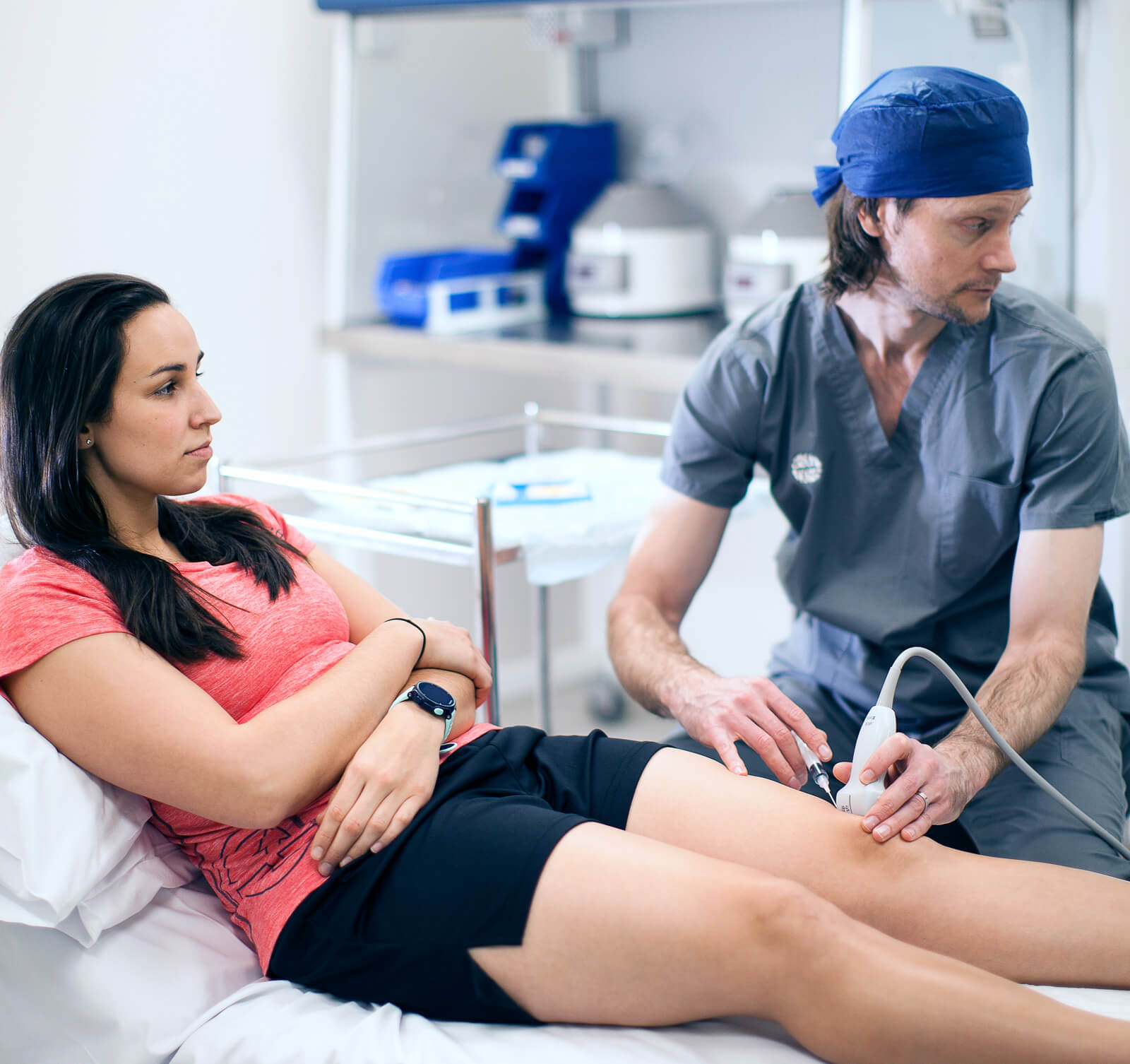10 August, 2015
“Rafael Nadal to receive stem cell treatment”. “Adam Goodes undergoes revolutionary stem cell treatment”. Headlines in the media like these highlight how regenerative therapies such as stem cells are increasingly used within the arena of sports medicine to improve healing and prolong a sportspersons career. These headlines however indicate that stem cell therapies are restricted to use in the elite athlete – nothing can be further from the truth.
Rather than studies assessing the use of stem cells in sporting injuries, the research which has successfully proven the regenerative capabilities of stem cells has been on patients just like you and I. Patients who enjoy an active and healthy lifestyle or importantly want to improve their activity levels rather than elite athletes whose achievements and abilities we can only dream of.
Arthritis – the 4th most disabling condition worldwide – is a condition of the general community and afflicts close to 4 million Australians. It is a condition that equally effects both the athlete and the keen gardener or walker. Importantly it is in the treatment of osteoarthritis that most recent research has successfully shown the benefits of stem cell therapy.
Despite enormous medical gains in recent years, our ability to successfully treat osteoarthritis – seen as a progressive and degenerative condition – has been limited. This was until last year when orthopaedic specialist Dr Khay-Yong Saw, in a strictly controlled trial, successfully used a combination of arthroscopy and pure stem cell injections to regrow normal like cartilage in patients suffering from knee osteoarthritis.
Building upon these results, researchers at the Seoul National University College of Medicine used high dose pure stem cell injections to successfully stimulate cartilage repair and growth in patients with generalized osteoarthritis including areas of full thickness cartilage loss.
Applying these successful treatment protocols we are able to bring the benefits of regenerative stem cell therapies to the broader community rather than just to the elite few who occupy the centre stage of sport.
Melbourne scientists are running two of the world’s largest randomised controlled trials to assess the safety and efficacy of stem cell therapy in the management of osteoarthritis and isolated cartilage lesions.
The trials, overseen by the human research ethics committees at Monash University and LaTrobe University, are actively enrolling potential participants. So far, a small number of suitable candidates have started treatments.
Principal study clinician and sports physician Dr Julien Freitag, says early indications are positive.
“Several of the participants allocated to the stem cell treatment groups have reported a notable reduction in both pain levels and improvement in function.”
Dr Freitag said it would be some time before preliminary data were available.
“Early improvement in pain and function is very encouraging but what we want is radiologically conclusive evidence of real regrowth of cartilage volume and/or delay in arthritis progression and this will take time to formally assess,” he said.
General Practitioners and Specialists across Australia are being asked to refer potential patients for assessment as to their suitability for the trials.
Dr Freitag said mesenchymal stem cell therapy, if proved successful, could delay or in some cases prevent any need for joint replacement surgery. He added:
“The importance of development of a proactive disease modifying treatment for osteoarthritis rather than simply pain management is highlighted by the growing number of joint replacement surgery performed on patients under the age of 60.”
“Recent international publications have highlighted the potential of mesenchymal cell therapy in the management of osteoarthritis. Furthermore we now have very strong safety and functional evidence from treating over 11,000 large animals (dogs and horses) with mesenchymal stem cells for similar clinical conditions to the human patients. Our research intends to expand upon these initial studies and will explore the regenerative properties of stem cells and their application in clinical medicine.”
Lifecare Prahran Sports Medicine is close to suburbs including Malvern, South Yarra, Toorak, Armadale, St Kilda East, Caulfield, Richmond and Hawthorn, and has early and late appointments for all your Sports Medicine and Physiotherapy needs.

